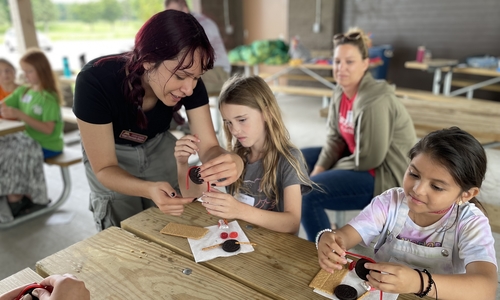Youth development curriculum library
Youth development curriculum library
Individual lessons and curricula on a variety of topics, such as gardening and agriculture, social and emotional skills, healthy living, college readiness, and STEM.
Social and emotional learning toolkit
A toolkit of practical strategies and resources for social and emotional learning in your program. Includes activities, templates and tools to help support staff and youth in SEL.
WeConnect
WeConnect is both a program model and a curriculum that helps young people see that they are participants in a global society. It is developed for middle school-aged youth, but can be adapted for other age groups.
Microgreens Growing Guide
Learn to grow microgreens for a fun, tasty, healthful treat! This guide provides all the information you need to grow and enjoy your first crop of microgreens.


